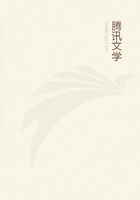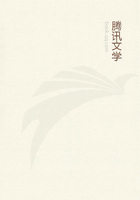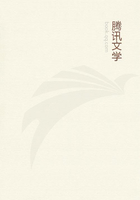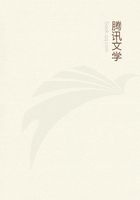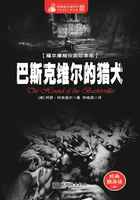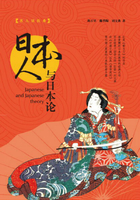But nowhere in the _Turba_ do we meet with the concept of the Philosopher's Stone as the medicine of the metals, a concept characteristic of Latin alchemy, and, to quote Mr WAITE again, "it does not appear that the conception of the Philosopher's Stone as a medicine of metals and of men was familiar to Greek alchemy;"[3]
[3] _Ibid_., p. 71.
All this seems to me very strongly to support my view of the origin of alchemy, which requires a specifically Christian mysticism only for this specific concept of the Philosopher's Stone in its fully-fledged form.
At any rate, the development of alchemical doctrine can be seen to have proceeded concomitantly with the development of mystical philosophy and theology. Those who are not prepared here to see effect and cause may be asked not only to formulate some other hypothesis in explanation of the origin of alchemy, but also to explain this fact of concomitant development.
From the standpoint of the transcendental theory of alchemy it has been urged "that the language of mystical theology seemed to be hardly so suitable to the exposition [as I maintain]
or concealment of chemical theories, as the language of a definite and generally credited branch of science was suited to the expression of a veiled and symbolical process such as the regeneration of man."[1] But such a statement is only possible with respect to the latest days of alchemy, when there WAS a science of chemistry, definite and generally credited.
The science of chemistry, it must be remembered, had no growth separate from alchemy, but evolved therefrom.
Of the days before this evolution had been accomplished, it would be in closer accord with the facts to say that theology, including the doctrine of man's regeneration, was in the position of "a definite and generally credited branch of science,"whereas chemical phenomena were veiled in deepest mystery and tinged with the dangers appertaining to magic.
As concerns the origin of alchemy, therefore, the argument as to suitability of language appears to support my own theory;it being open to assume that after formulation--that is, in alchemy's latter days--chemical nomenclature and theories were employed by certain writers to veil heterodox religious doctrine.
[1] PHILIP S. WELLBY, M.A., in _The Journal of the Alchemical Society_, vol. ii. (1914), p. 104.
Another recent writer on the subject, my friend the late Mr ABDUL-ALI, has remarked that "he thought that, in the mind of the alchemist at least, there was something more than analogy between metallic and psychic transformations, and that the whole subject might well be assigned to the doctrinal category of ineffable and transcendent Oneness. This Oneness comprehended all--soul and body, spirit and matter, mystic visions and waking life--and the sharp metaphysical distinction between the mental and the non-mental realms, so prominent during the history of philosophy, was not regarded by these early investigators in the sphere of nature.
There was the sentiment, perhaps only dimly experienced, that not only the law, but the substance of the Universe, was one;that mind was everywhere in contact with its own kindred;and that metallic transmutation would, somehow, so to speak, signalise and seal a hidden transmutation of the soul."[1]
[1] SIJIL ABDUL-ALI, in _The Journal of the Alchemical Society_, vol. ii.
(1914), p. 102.
I am to a large extent in agreement with this view.
Mr ABDUL-ALI quarrels with the term "analogy," and, if it is held to imply any merely superficial resemblance, it certainly is not adequate to my own needs, though I know not what other word to use.
SWEDENBORG'S term "correspondence" would be better for my purpose, as standing for an essential connection between spirit and matter, arising out of the causal relationship of the one to the other.
But if SWEDENBORG believed that matter and spirit were most intimately related, he nevertheless had a very precise idea of their distinctness, which he formulated in his Doctrine of Degrees--a very exact metaphysical doctrine indeed.
The alchemists, on the other hand, had no such clear ideas on the subject. It would be even more absurd to attribute to them a Cartesian dualism. To their ways of thinking, it was by no means impossible to grasp the spiritual essences of things by what we should now call chemical manipulations.
For them a gas was still a ghost and air a spirit.
One could quote pages in support of this, but I will content myself with a few words from the _Turba_--the antiquity of the book makes it of value, and anyway it is near at hand.
"Permanent water," whatever that may be, being pounded with the body, we are told, "by the will of God it turns that body into spirit."And in another place we read that "the Philosophers have said:
Except ye turn bodies into not-bodies, and incorporeal things into bodies, ye have not yet discovered the rule of operation."[1a] No one who could write like this, and believe it, could hold matter and spirit as altogether distinct.
But it is equally obvious that the injunction to convert body into spirit is meaningless if spirit and body are held to be identical. I have been criticised for crediting the alchemists "with the philosophic acumen of Hegel,"[1b]
but that is just what I think one ought to avoid doing.
At the same time, however, it is extremely difficult to give a precise account of views which are very far from being precise themselves. But I think it may be said, without fear of error, that the alchemist who could say, "As above, so below," _ipso facto_ recognised both a very close connection between spirit and matter, and a distinction between them.

